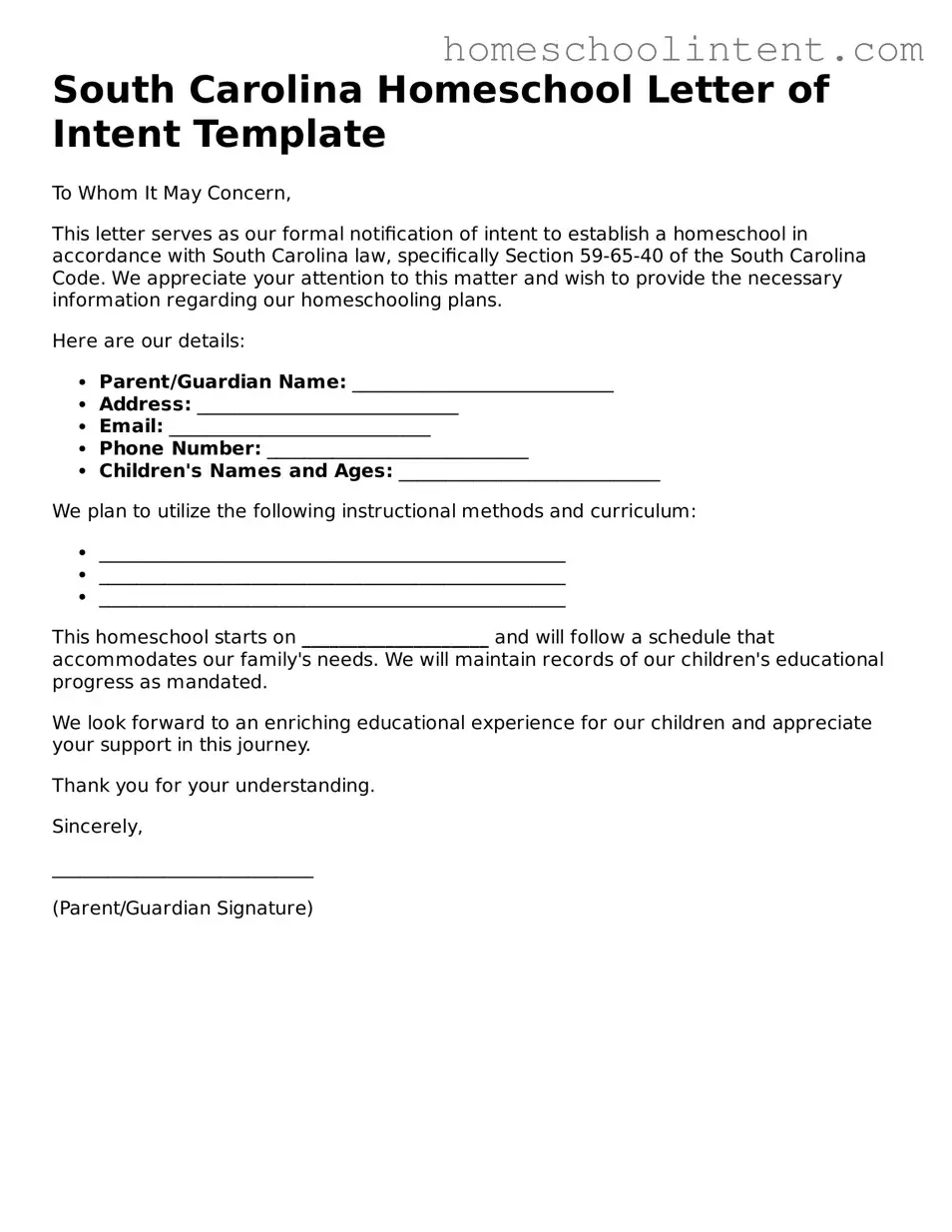Documents used along the form
When families decide to homeschool in South Carolina, several important forms and documents accompany the Homeschool Letter of Intent. Each document serves a specific purpose in ensuring compliance with state regulations and providing necessary information about the homeschooling process. Below are some commonly used documents that may be required or beneficial for homeschooling families.
- Homeschooling Curriculum Plan: This document outlines the educational materials and methods that will be used throughout the school year. It helps parents organize their teaching strategy and ensures that they cover all required subjects.
- Attendance Records: Keeping track of student attendance is essential for compliance with state regulations. This document can be a simple log that records days of instruction, which may be requested by local school officials.
- Progress Reports: These reports provide updates on a student’s academic performance and progress. They can be used to communicate with parents and any educational authorities if needed.
- Standardized Test Results: In South Carolina, homeschooled students may be required to take standardized tests at certain grade levels. Keeping copies of these results helps demonstrate educational progress and can be useful for future academic transitions.
- Portfolio of Student Work: A collection of a student’s completed work, projects, and assessments can serve as evidence of learning. This portfolio can be valuable for evaluations or assessments by educational authorities.
- Withdrawal Form from Public School: If a child is transitioning from public school to homeschooling, this form is necessary to officially withdraw the student. It helps maintain clear records with the local school district.
These documents play a crucial role in the homeschooling journey, helping families stay organized and compliant with state laws. By preparing and maintaining these forms, parents can create a structured and effective educational environment for their children.
